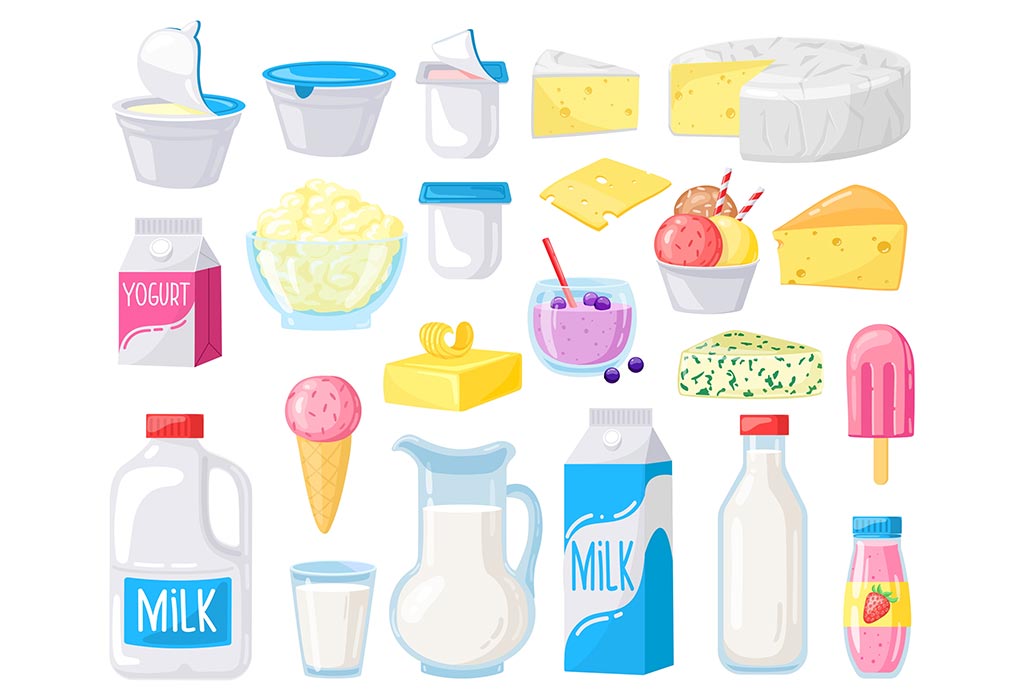- Empty cart.
- Continue Shopping
The Risks and Benefits of Children’s Dairy Products

Dairy products play a significant role in the growth and development of children. They are a rich source of essential nutrients, but they also come with certain risks. We will explore the potential benefits and risks associated with children’s consumption of dairy products.
Benefits of Dairy Products for Children
1. Calcium and Bone Health
Dairy products are a primary source of calcium, a crucial mineral for developing strong bones and teeth. Adequate calcium intake during childhood is essential for preventing conditions like osteoporosis later in life.
2. Protein for Growth and Development
Dairy products are a valuable source of high-quality protein, necessary for muscle development, tissue repair, and overall growth.
3. Vitamins and Minerals
Dairy products are rich in essential vitamins and minerals, including vitamin D, which aids in calcium absorption, and potassium, vital for heart health and muscle function.
4. Probiotics for Digestive Health
Certain dairy products like yogurt contain probiotics, beneficial bacteria that support a healthy digestive system and strengthen the immune system.
5. Contribution to a Balanced Diet
Dairy products, when consumed in moderation, can be part of a balanced diet that provides a wide array of nutrients necessary for overall health.
Risks Associated with Dairy Products for Children
1. Lactose Intolerance
Some children may be lactose intolerant, meaning they have difficulty digesting lactose, the sugar found in milk. This can lead to digestive discomfort and may require the limitation or avoidance of dairy products.
2. Allergies
Dairy allergies are not uncommon in children. This involves an immune response to proteins in milk, leading to symptoms ranging from hives and digestive issues to severe anaphylactic reactions in rare cases.
3. Saturated Fat and Cholesterol
Certain dairy products, particularly full-fat varieties, can be high in saturated fat and cholesterol. Overconsumption of these components can contribute to heart health issues in the long term.
4. Potential for Hormones and Antibiotics
Conventionally produced dairy products may contain residues of hormones and antibiotics used in the farming process. Opting for organic or hormone-free options can mitigate this risk.
5. Environmental Impact
The dairy industry can have significant environmental consequences, including greenhouse gas emissions and water usage. Being mindful of sustainable dairy production practices is important for the health of the planet.
Making Informed Choices
- Consider Individual Tolerances: Pay attention to how your child reacts to dairy products. If they experience discomfort or allergic reactions, consult a healthcare provider.
- Choose Quality Sources: Opt for organic, hormone-free, and minimally processed dairy products when possible to reduce exposure to potential contaminants.
- Moderation is Key: Encourage balanced consumption of dairy products as part of a varied diet. Balance with other nutrient-dense foods to ensure overall nutritional needs are met.
- Explore Dairy Alternatives: For children with lactose intolerance or allergies, explore alternatives like fortified plant-based milks, nut-based cheeses, and coconut or almond yogurt.
In conclusion, dairy products can be a valuable part of a child’s diet, providing essential nutrients for growth and development. However, it’s important to be aware of potential risks, especially for children with specific dietary needs or sensitivities. By making informed choices and maintaining a balanced diet, you can ensure that your child receives the benefits of dairy products while minimizing potential drawbacks. Remember, individualized care and attention to your child’s unique needs are crucial for their overall health and well-being.








